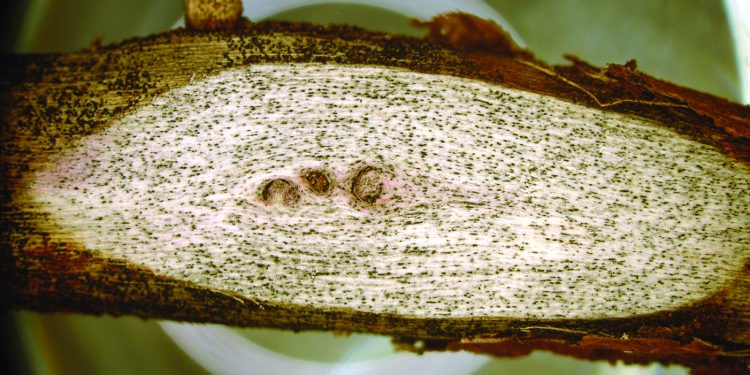CharcoalRotPrevention #MacrophominaManagement #PlantDiseaseControl #CropHealth #SoilManagement
Charcoal rot, caused by the fungus Macrophomina phaseolina, is a devastating plant disease that affects a wide range of crops including soybeans, corn, sorghum, and sunflowers. This disease is prevalent in hot and dry regions, and can cause significant economic losses for farmers. In this article, we will explore the causes and consequences of charcoal rot, and discuss ways to prevent and manage its spread.
Macrophomina phaseolina infects plants through their roots, causing the death of the vascular tissues that transport water and nutrients throughout the plant. This can lead to wilted leaves, stunted growth, and eventual plant death. The fungus can survive in soil for several years, making crop rotation and other management strategies difficult.
To prevent and manage charcoal rot, it is important to practice good soil management. This includes avoiding excessive tillage, reducing plant stress through proper irrigation and fertilization, and using resistant crop varieties when available. Chemical treatments are also available, but should be used with caution to avoid environmental contamination and resistance development.
The consequences of charcoal rot can be severe, leading to significant economic losses for farmers and reduced food availability for consumers. By raising awareness of this disease and promoting effective management strategies, we can help reduce its impact and ensure a sustainable future for agriculture.































